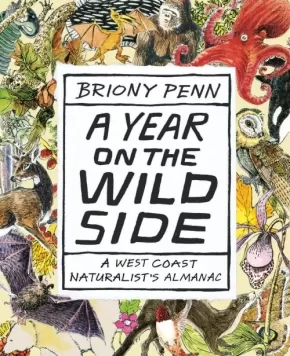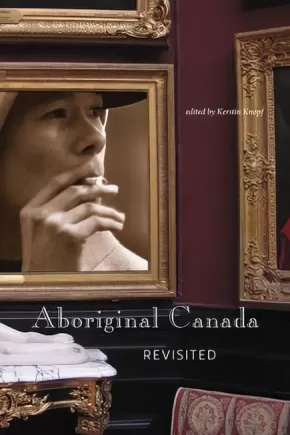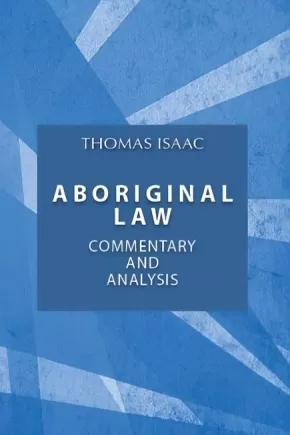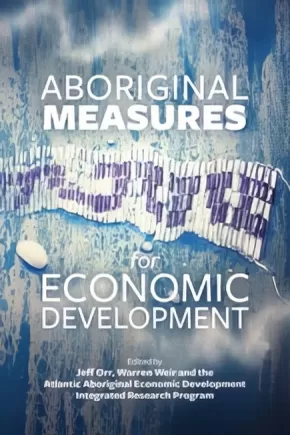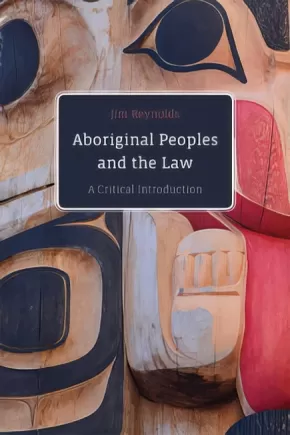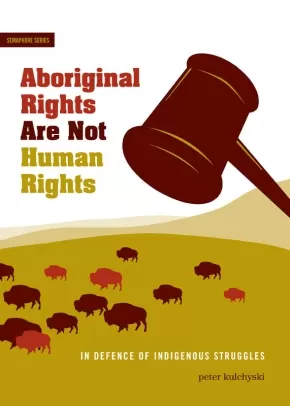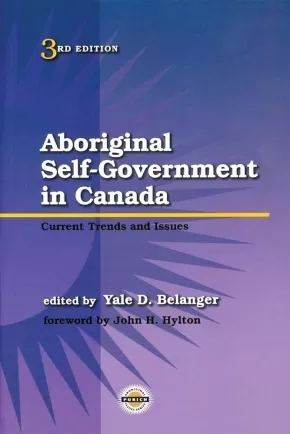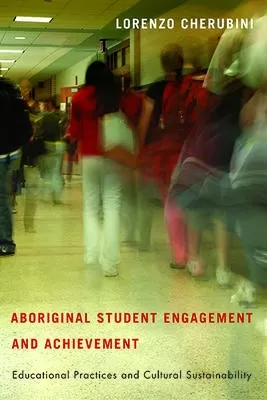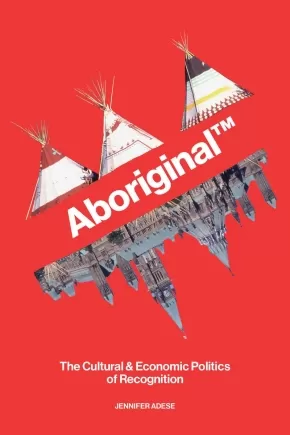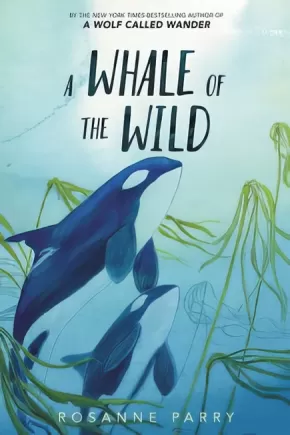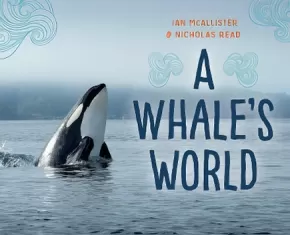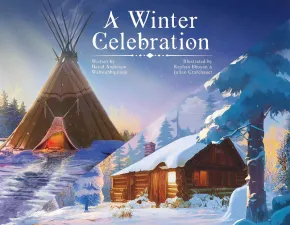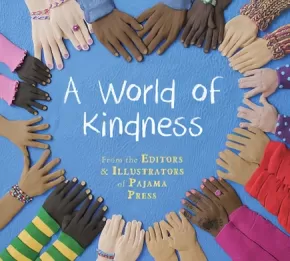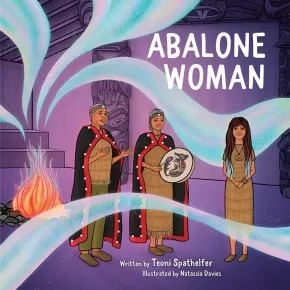
English
Books (10)
A Year on the Wild Side: A West Coast Naturalist's Almanac
$26.00
Format:
Paperback
ISBN / Barcode: 9781771512671
Synopsis:
Synopsis:
A freshly designed, new edition of a funny weekly chronicle that offers a year-long, intimate view of the flora and fauna populating the West Coast.
A Year on the Wild Side is a witty commentary on the social and natural history of Vancouver Island. Composed of short, readable essays arranged into 12 monthly chapters, this engaging book reveals the magic and humour of the natural world and reminds us of our place within it.
As the weeks and seasons unfold with the turning of the pages, you’ll be in sync with the living world that surrounds you. Discover what berries are ripe and the best time to pick them. Learn why the termites swarm, where the herring spawn, and when the maple leaves fall. Get up close and personal with fascinating creatures like the snowy owl, the giant Pacific octopus, the river otter, and more.
The West Coast is abundantly alive, and A Year on the Wild Side invites you to indulge in unforgettable experiences, week by week, all year long.
Reviews
"Salt Spring Island naturalist, artist and author Briony Penn has spent decades studying the flora and fauna of the West Coast. In her new book, A Year on the Wild Side, she shares her unique perspectives — and enchanting illustrations — on the social and natural history of more than 98 plant and animal species found on the coast." - Times Colonist
Additional Information
400 pages | 6.50" x 8.00" | 2nd edition
Aboriginal Canada Revisited (1 in Stock) - ON SALE!
$36.00 $45.00
Editors:
Format:
Paperback
Text Content Territories:
Indigenous Canadian;
ISBN / Barcode: 9780776606798
Synopsis:
Synopsis:
Exploring a variety of topics-including health, politics, education, art, literature, media, and film-Aboriginal Canada Revisited draws a portrait of the current political and cultural position of Canada's Aboriginal peoples. While lauding improvements made in the past decades, the contributors draw attention to the systemic problems that continue to marginalize Aboriginal people within Canadian society.
From the Introduction: "[This collection helps to highlight areas where the colonial legacy still takes its toll, to acknowledge the manifold ways of Aboriginal cultural expression, and to demonstrate where Aboriginal and non-Aboriginal people are starting to find common ground."
Contributors include Aboriginal and non-Aboriginal scholars from Europe and Canada, including Marlene Atleo, University of Manitoba; Mansell Griffin, Nisga'a Village of Gitwinksihlkw, British Columbia; Robert Harding, University College of the Fraser Valley; Tricia Logan, University of Manitoba; Steffi Retzlaff, McMaster University; Siobhán Smith, University of British Columbia; Barbara Walberg, Confederation College.
Suggested use: Grade 12 Law
Authenticity Note: Because its contributions from Indigenous scholars, this book is labelled as containing Authentic Indigenous Text.
Additional Information
436 pages | 6.00" x 9.00"
Aboriginal Law: Commentary and Analysis (2 in Stock) - ON SALE!
$45.00 $60.00
Format:
Paperback
Text Content Territories:
Indigenous Canadian;
ISBN / Barcode: 9781895830620
Synopsis:
Synopsis:
Thomas Isaac highlights the most important aspects of Canadian law as it impacts on Aboriginal peoples and their relationship with the wider Canadian society. While covering important issues such as Aboriginal and treaty rights, constitutional issues, land claims, self-government, provincial and federal roles in dealing with Aboriginal peoples, the rights of the Métis, and the Indian Act, this book pays particular attention to the Crown’s duty to consult. In discussing the Crown’s duty to consult the author canvasses when and to whom the duty applies. He also highlights the role of governments in reconciling Aboriginal interests with the needs of Canadian society as a whole. The Supreme Court of Canada is clear that the objective of achieving reconciliation lies primarily with governments.
This is a law book, but it is designed for use by anyone needing to understand Aboriginal legal issues and is presented in a neutral way. All major Canadian cases dealing with Aboriginal law are discussed and analyzed in this volume. The author looks at the broad picture of trends that are developing in the law and the background to such trends. This edition of Aboriginal Law does not contain case or legislative excerpts, all of which are readily available on the internet.
Additional Information
443 pages | 6.00" x 9.00"
Aboriginal Measures for Economic Development
$24.95
Format:
Paperback
Text Content Territories:
Indigenous Canadian; First Nations;
ISBN / Barcode: 9781552665916
Synopsis:
Synopsis:
This volume explores Indigenous measures of economic development in First Nations Atlantic Canadian communities that are of relevance for First Nations peoples. Many of the challenges faced by these communities and their local, regional and national leaders in advancing economic development relate to experiences of diverse and complex issues — most of which clash with federal policies that increasingly call for centralization, standardization and uniformity. This volume illustrates the key challenges in establishing and maintaining socially responsible economic development that is beneficial for Aboriginal communities.
Aboriginal Music in Contemporary Canada: Echoes and Exchanges
$55.00
Editors:
Format:
Hardcover
Text Content Territories:
Indigenous Canadian; First Nations; Inuit; Métis;
ISBN / Barcode: 9780773539518
Synopsis:
Synopsis:
First Nations, Inuit, and Métis music in Canada is dynamic and diverse, reflecting continuities with earlier traditions and innovative approaches to creating new musical sounds. Aboriginal Music in Contemporary Canada narrates a story of resistance and renewal, struggle and success, as indigenous musicians in Canada negotiate who they are and who they want to be. Comprised of essays, interviews, and personal reflections by Aboriginal and non-Aboriginal musicians and scholars alike, the collection highlights themes of innovation, teaching and transmission, and cultural interaction. Individual chapters discuss musical genres ranging from popular styles including country and pop to nation-specific and intertribal practices such as powwows, as well as hybrid performances that incorporate music with theatre and dance. As a whole, this collection demonstrates how music is a powerful tool for articulating the social challenges faced by Aboriginal communities and an effective way to affirm indigenous strength and pride. Juxtaposing scholarly study with artistic practice, Aboriginal Music in Contemporary Canada celebrates and critically engages Canada's vibrant Aboriginal music scene. Contributors include Véronique Audet (Université de Montreal), Columpa C. Bobb (Tsleil Waututh and Nlaka'pamux, Manitoba Theatre for Young People), Sadie Buck (Haudenosaunee), Annette Chrétien (Métis), Marie Clements (Métis/Dene), Walter Denny Jr. (Mi'kmaw), Gabriel Desrosiers (Ojibwa, University of Minnesota, Morris), Beverley Diamond (Memorial University), Jimmy Dick (Cree), Byron Dueck (Royal Northern College of Music), Klisala Harrison (University of Helsinki), Donna Lariviere (Algonquin), Charity Marsh (University of Regina), Sophie Merasty (Dene and Cree), Garry Oker (Dane-zaa), Marcia Ostashewski (Cape Breton University), Mary Piercey (Memorial University), Amber Ridington (Memorial University), Dylan Robinson (Stó:lo, University of Toronto), Christopher Scales (Michigan State University), Gilles Sioui (Wendat), Gordon E. Smith (Queen's University), Beverly Souliere (Algonquin), Janice Esther Tulk (Memorial University), Florent Vollant (Innu) and Russell Wallace (Lil'wat).
Additional Information
520 pages | 6.14" x 9.25"
Authenticity Note: While the editors of this book are not Indigenous, the majority of contributors are Indigenous; therefore, this book has received the Authentic Indigenous Text label.
Aboriginal Peoples and the Law: A Critical Introduction
$29.95
Format:
Paperback
Text Content Territories:
Indigenous Canadian;
ISBN / Barcode: 9780774880213
Synopsis:
Synopsis:
Can Canada claim to be a just society for Indigenous peoples? To answer the question, and as part of the process of reconciliation, the Truth and Reconciliation Commission urged a better understanding of Aboriginal law for all Canadians.
Aboriginal Peoples and the Law responds to that call, introducing readers with or without a legal background to modern Aboriginal law and outlining significant cases and decisions in straightforward, non-technical language. Jim Reynolds provides the historical context needed to understand relations between Indigenous peoples and settlers and explains key topics such as sovereignty, fiduciary duties, the honour of the Crown, Aboriginal rights and title, treaties, the duty to consult, and Indigenous law. He also discusses key international developments such as the United Nations Declaration on the Rights of Indigenous Peoples. He concludes by considering major questions that need to be resolved, including balancing Aboriginal and non-Aboriginal rights and interests and the benefits and drawbacks of using either litigation or negotiation to resolve Indigenous issues.
This critical analysis of the current state of the law makes the case that rather than leaving the judiciary to sort out essentially political issues, Canadian politicians need to take responsibility for this crucial aspect of building a just society.
This book will find an audience among students taking both introductory and specialist courses in Aboriginal law, Indigenous studies, or the social sciences; lawyers with an interest in Aboriginal law; and journalists, government officials, business people, and other members of the public who want a better understanding of where the law stands today and where it should go in the future.
Additional Information
296 pages | 6.00" x 9.00" | Paperback
Aboriginal Rights Are Not Human Rights: In Defense of Indigenous Struggles
$19.95
Format:
Paperback
Text Content Territories:
Indigenous Canadian;
ISBN / Barcode: 9781894037761
Synopsis:
Synopsis:
Aboriginal rights do not belong to the broader category of universal human rights because they are grounded in the particular practices of aboriginal people. So argues Peter Kulchyski in this provocative book from the front lines of indigenous people’s struggles to defend their culture from the ongoing conquest of their traditional lands. Kulchyski shows that some differences are more different than others, and he draws a border between bush culture and mall culture, between indigenous people’s mode of production and the totalizing push of state-led capitalism.
Aboriginal Rights Are Not Human Rights provides much needed conceptual and historical analysis of aboriginal and treaty rights in Canada, and offers concrete suggestions to transform the current policy paradigm into one that supports and invigorates indigenous cultures in a contemporary context.
Aboriginal Self-Government in Canada: Current Trends and Issues, 3rd Edition (2 in Stock) - ON SALE!
$36.00 $45.00
Format:
Paperback
Text Content Territories:
Indigenous Canadian;
ISBN / Barcode: 9781895830323
Synopsis:
Synopsis:
Building on the success of the first two editions, this volume briefly recaps the historical development and public acceptance of the concept of Aboriginal self-government, then proceeds to examine its theoretical underpinnings, the state of Aboriginal self-government in Canada today, and the many practical issues surrounding implementation. Topics addressed include: justice innovations, initiatives in health and education to grant greater Aboriginal control, financing and intergovernmental relations, Aboriginal-municipal government relations, developing effective Aboriginal leadership, Métis self government aspirations, the intersection of women’s rights and self-government, and international perspectives. Various self-government arrangements already in existence are examined including the establishment of Nunavut, the James Bay Agreement, Treaty Land Entitlement settlements, the Alberta Métis settlements, and many other land claims settlements that have granted Aboriginal communities greater control over their affairs.
This book is an interdisciplinary guide for practitioners, policy makers, and students interested in learning about government policy and the aspirations of Canada’s Aboriginal peoples. With the exception of three updated chapters, all of the material by the 31 contributors in this volume is new and original. Brief biographies of the contributors can be found on our web site.
Contributors Include:
Yale Belanger is an assistant professor of Native American Studies at the University of Lethbridge where he divides his time as the department’s history and politics specialist while also teaching in the First Nations Governance Program in the Management Department. He is the author of Gambling with the Future: The Evolution of Aboriginal Gaming in Canada (Purich Publishing, 2006).
Frances Abele teaches in the School of Public Policy and Administration at Carleton University. She publishes in the areas of northern and Indigenous affairs, and has worked with Indigenous governments and organizations for the last three decades.
Yvon Allard is an independent Aboriginal health consultant in Ottawa. As a member of the Manitoba Métis community, he has served as an advisor on health issues to regional and national Métis organizations.
Colette Arcand is a fourth-year student majoring in Native Studies with a minor in Economics. Colette is a member of the Alexander First Nation in Alberta and a volunteer board member of the Friends of the Kipohtakaw Historical Foundation.
Catherine Bell is a professor of law at the University of Alberta specializing in Aboriginal legal issues, property law, community based legal research, and dispute resolution. She has published extensively on Métis and First Nation legal issues including two books on the Métis settlements: Alberta’s Métis Settlement Legislation: An Overview of Ownership and Management of Settlement Lands and Contemporary Métis Justice: The Settlement Way.
Brian Calliou is the program director for The Banff Centre’s Aboriginal Leadership and Management. Brian is a member of the Sucker Creek First Nation in north central Alberta and holds memberships with the Canadian Bar Association, the Indigenous Bar Association, and the Legal Archives Society of Alberta.
Angela Cameron is a Ph.D. candidate at the Faculty of Law, University of Victoria. Her areas of research and writing include: restorative justice, criminal law, intimate violence, reproductive technologies, property law, and feminist legal theory.
Larry Chartrand is an Associate Professor of Law at the University of Ottawa. His area of scholarship is in the field of Aboriginal rights and in particular, Métis rights. He obtained his B.Ed. from the University of Alberta in 1986, his LL.B from York University in 1989, and his LL.M. from Queen’s University in 2001. He was Director of the Aboriginal Governance Program and Professor of Politics at the University of Winnipeg from 2004 - 2007.
Ken Coates is Professor of History and Dean, Faculty of Arts, University of Waterloo. He specializes in the history of the Canadian North, Indigenous-newcomers relations and contemporary Aboriginal political issues. His most recent work is A Global History of Indigenous Peoples: Struggle and Survival.
Jo-Anne Fiske is Dean of Graduate Studies and professor of Women’s Studies at the University of Lethbridge. She has worked with Aboriginal and First Nations communities on social policy, health policy, human rights, and homelessness.
Augie Fleras is associate professor of sociology at the University of Waterloo. He is the author of numerous books, including Social Problems in Canada (Third Edition) and Unequal Relations (Third Edition; with Jean Elliott) and Recalling Aotearoa(with Paul Spoonley).
Jim Frideres is currently a professor of Sociology and the Director of the International Indigenous Studies program at the University of Calgary. He also holds the Chair of Ethnic Studies. He is the author of numerous articles and co-author with Rene Gadacz of Aboriginal Peoples in Canada, now in its 8th edition.
Joe Garcea is a professor in the Department of Political Studies at the University of Saskatchewan, where he teaches local government, public administration, and public policy analysis. His areas of expertise include municipal and intergovernmental relations. He co-authored with F. Laurie Barron Urban Indian Reserves: Forging New Relationships in Saskatchewan (Purich Publishing, 1999).
Ailsa Henderson is assistant professor in the Political Science at the University of Toronto. The author of Nunavut: Rethinking Political Culture (UBC Press, 2007), she has published two books and more than twenty-five journal articles or book chapters on sub-state political culture in federal and multi-national states, and is the principal investigator of the Nunavut Social Attitudes Survey.
James (Sa'ke'j) Youngblood Henderson is the research director of the Native Law Centre of Canada and teaches Aboriginal law at the College of Law, University of Saskatchewan. He was awarded the Indigenous Peoples’ Counsel (2005) and the National Aboriginal Achievement Award for Law and Justice (2006).
John Hylton has served as a chief executive, university educator, senior public servant, and consultant. He has served many commissions and inquiries in all parts of Canada, including the Royal Commission on Aboriginal Peoples and the Ipperwash Inquiry. He is currently active working with organizations to improve strategy, leadership, governance and performance. John was the editor of the first two editions of Aboriginal Self-Government in Canada (Purich Publishing, 1994, 1999).
Robert Alexander Innes is a Member of Cowessess First Nation and an Assistant Professor in the Department of Native Studies at the University of Saskatchewan.
Josee Lavoie is an assistant professor in the Health Sciences Program at the University of Northern British Columbia who previously spent 10 years working for Indigenous controlled primary health care services in Nunavut and northern Saskatchewan.
Roger Maaka, Ngati Kahungunu, is head of the Department of Native Studies at the University of Saskatchewan. He sits on the Waitangi Tribunal enquiry into the Indigenous Flora and Fauna and Intellectual Property claim. His research interests include urbanization and Indigenous peoples, Native Studies as an academic discipline, post-treaty settlement development, the construction of contemporary indigenous identities, and indigeneity as a global social movement.
W.R. Morrison is Professor of History, University of Northern British Columbia. He works on aspects of northern Canada history and is currently working with Ken Coates on a survey history of major Canadian court cases.
Bradford W. Morse is Professor of Law, University of Ottawa. He was Research Director to the Aboriginal Justice Inquiry of Manitoba 1988-91; Chief of Staff to Minister of INAC 1993-96; legal advisor, consultant, and negotiator for many First Nations, national and regional Indigenous organizations, royal commissions, and governments in Canada, Australia, and New Zealand over the past 30 years.
Val Napoleon is a member of the Saulteau First Nation in northeastern British Columbia and is of Cree and Dunnezah heritage. She worked as a community activist and consultant in northwestern B.C. for over twenty-five years. Since 2005, Val has been an assistant professor with the University of Alberta teaching in the Faculties of Law and Native Studies.
David Newhouse is Onondaga from the Six Nations of the Grand River community near Brantford, Ontario. He is the first Principal of the Peter Gzowski College at Trent University and former Chair of the Department of Native Studies. He is an Associate Professor in the Department of Native Studies and the Business Administration Program.
John O’Neil is Dean of Health Sciences at Simon Fraser University. He has published more than 120 papers and reports on a variety of Aboriginal health issues, including self-government and health system development, cultural understandings of environmental health risks, and social determinants of health disparities.
Terrence Ross Pelletier is former Chief of Cowessess First Nation and served as the Treaty Land Entitlement Coordinator for Cowessess during the band’s TLE process. He is currently pursuing a Masters in Educational Administration at the University of Saskatchewan.
Michael Prince is Lansdowne Professor of Social Policy at the University of Victoria. Among his areas of research, he has collaborated with Frances Abele on numerous publications dealing with Aboriginal [Indigenous] government and Canadian federalism.
Jeff Reading is a professor in the Faculty of Human and Social Development and a faculty associate with the Indigenous Governance Program at the University of Victoria. He is Fellow of the Canadian Academy of Health Sciences and his research has brought attention to issues such as disease prevention, tobacco use and misuse, and diabetes among Aboriginal people in Canada.
Jean-Paul Restoule is assistant professor of Aboriginal Education in the Department of Adult Education and Counselling Psychology at the Ontario Institute for Studies in Education of the University of Toronto. He is a member of the Dokis First Nation.
Harold Robinson is a member of the Métis Settlements General Council located in Edmonton, Alberta.
Dahti Scott is currently studying at the University of Alberta where she is completing an undergraduate double major in Environmental Conservation Sciences and Native Studies. Dahti is a Tlicho Dene who grew up in the Northwest Territories.
Gabrielle Slowey is an Assistant Professor in the Department of Political Science at York University (Toronto) where she teaches courses in Aboriginal Politics. Her research focuses on issues of self-government, land claims, and non-renewable resource development. Field sites include northern Alberta, Yukon, NWT, James Bay and New Zealand.
Authenticity Note: Because of the contributions from Indigenous peoples to this work, it has been labelled as containing Authentic Indigenous Text.
Aboriginal Student Engagement and Achievement (1 in Stock) - ON SALE!
$24.75 $32.95
Format:
Paperback
Text Content Territories:
Indigenous Canadian;
Grade Levels: University/College;
ISBN / Barcode: 9780774826563
Synopsis:
Synopsis:
Aboriginal people want an education that reflects their cultural values and linguistic heritages, an education that will foster their children's engagement and identity and not marginalize them as learners. This book turns the spotlight on a rare success story – one Ontario high school's attempt to recognize Aboriginal students' cultural and academic needs while helping them build relationships with non-Aboriginal students. Aboriginal students constitute one of the fastest-growing groups in public schools. This timely study not only reveals how the current system is failing Indigenous students – it offers recommendations for enhancing their achievement levels in Canada and abroad.
Additional Information
212 pages | 6.00" x 9.00"
Aboriginal™: The Cultural and Economic Politics of Recognition
$27.95
Format:
Paperback
Text Content Territories:
Indigenous Canadian;
ISBN / Barcode: 9781772840056
Synopsis:
Synopsis:
In Aboriginal™, Jennifer Adese explores the origins, meaning, and usage of the term “Aboriginal” and its displacement by the word “Indigenous.” In the Constitution Act, 1982, the term’s express purpose was to speak to specific “aboriginal rights”. Yet in the wake of the Constitution’s passage, Aboriginal, in its capitalized form, became increasingly used to describe and categorize people.
More than simple legal and political vernacular, the term Aboriginal (capitalized or not) has had real-world consequences for the people it defined. Aboriginal™ argues the term was a tool used to advance Canada’s cultural and economic assimilatory agenda throughout the 1980s until the mid-2010s. Moreover, Adese illuminates how the word engenders a kind of “Aboriginalized multicultural” brand easily reduced to and exported as a nation brand, economic brand, and place brand—at odds with the diversity and complexity of Indigenous peoples and communities.
In her multi-disciplinary research, Adese examines the discursive spaces and concrete sites where Aboriginality features prominently: the Constitution Act, 1982; the 2010 Vancouver Olympics; the “Aboriginal tourism industry”; and the Vancouver International Airport. Reflecting on the term’s abrupt exit from public discourse and the recent turn toward Indigenous, Indigeneity, and Indigenization, Aboriginal™ offers insight into Indigenous-Canada relations, reconciliation efforts, and current discussions of Indigenous identity, authenticity, and agency.
Additional Information
272 pages | 6.00" x 9.00" | Paperback
Kids Books (5)
A Whale of the Wild
$21.99
Format:
Hardcover
ISBN / Barcode: 9780062995926
Synopsis:
Synopsis:
In this book, a young orca whale must lead her brother on a tumultuous journey to be reunited with their pod. This gorgeously illustrated animal adventure novel explores family bonds, survival, global warming, and a changing seascape. Includes information about orcas and their habitats.
For Vega and her family, salmon is life. And Vega is learning to be a salmon finder, preparing for the day when she will be her family’s matriarch. But then she and her brother Deneb are separated from their pod when a devastating earthquake and tsunami render the seascape unrecognizable. Vega must use every skill she has to lead her brother back to their family. The young orcas face a shark attack, hunger, the deep ocean, and polluted waters on their journey. Will Vega become the leader she’s destined to be?
A Whale of the Wild weaves a heart-stopping tale of survival with impeccable research on a delicate ecosystem and threats to marine life. New York Times-bestselling author Rosanne Parry’s fluid writing and Lindsay Moore’s stunning artwork bring the Salish Sea and its inhabitants to vivid life.
An excellent read-aloud and read-alone.
Includes black-and-white illustrations throughout, a map, and extensive backmatter about orcas and their habitats.
Reviews
“Parry creates a spellbinding, heart-stopping adventure for middle-grade readers—this time about a pod of orca whales and their plight in today’s Salish Sea. . . . Parry’s thorough research, observation, and creative writing combine to share the marvelous matriarchal familial world of orcas . . . Her descriptive narrative rises in intensity to match each new danger and resolves with a bittersweet yet hopeful finish. . . . Excellent.” — Booklist (starred review)
“After a tsunami devastates their habitat in the Salish Sea, a young orca and her brother embark on a remarkable adventure. . . . Vega and Deneb tell their harrowing story, engaging young readers while educating them about the marine ecosystem. . . . A dramatic, educational, authentic whale of a tale.” — Kirkus Reviews
"Vega is a young orca whale being trained by her mother to one day be the group’s Wayfinder . . . But when she and her young brother are separated from the pod . . . Vega must use her wayfinding skills to reunite them with their elders. . . . Parry weav[es] a great deal of information about orcas and their habits into the narrative.” — School Library Journal
Educator Information
Recommended for ages 8 to 12.
Additional Information
336 pages | 5.50" x 8.25"
A Whale's World
$19.95
Artists:
Format:
Hardcover
ISBN / Barcode: 9781459812734
Synopsis:
Synopsis:
A Whale’s World follows a pod of spy-hopping orcas as they explore the ecosystems of the Great Bear Sea while hunting for their next meal. Past rocky shores and through kelp forests, they observe foraging wolves, hungry grizzly bears, curious black bears, graceful fin whales, splashing porpoises, slippery seals and other members of the Pacific coastal food web. The book gives readers a fun introduction to the many ways that marine and land animals interact with their environments and with each other.
Educator & Series Information
This is the fourth book in the My Great Bear Rainforest Series.
Books in this series include:
Wolf Island
A Bear's Life
The Seal Garden
A Whale's World
Recommended Ages: 5-8
Additional Information
32 pages | 10.75" x 8.75" | Hardcover (HC)
A Winter Celebration
$16.99
Artists:
Format:
Hardcover
Text Content Territories:
Indigenous Canadian; First Nations; Anishinaabeg;
ISBN / Barcode: 9781990297540
Synopsis:
Synopsis:
Wahwahbiginojii David Anderson's A Winter Celebration is a heartwarming story about what might have happened during the first winter celebration when an Anishinaabe family and a Christian family gathered together on this Land to celebrate the winter season. At this time of year, both cultures celebrate in their own way. A book about how two cultures and two traditions can come together in a way that is respectful, responsible and builds relationships.
Educator Information
Recommended for grades 4 to 6.
Additional Information
24 Pages | Hardcover
A World of Kindness
$19.95
Artists:
Editors:
Format:
Hardcover
ISBN / Barcode: 9781772780505
Synopsis:
Synopsis:
Are you kind?
In a series of simple yet evocative questions, this impactful book asks children how they will show kindness and consideration for others. Written by the editors of Pajama Press, and illustrated by celebrated Pajama Press artists, these stunning pages inspire meaningful discussion and storytelling about the understated yet powerful ways in which children might influence the world around them. A World of Kindness goes beyond mere rhetoric to examine, in a child-friendly way, everyday social interactions where a kind word or act could have a transformative affect on others.
Royalties from the proceeds of this book will be donated to Think Kindness.
Many of the original images in this book have been donated by the artists. The cover art was created and donated by award-winning author-illustrator Suzanne Del Rizzo. Some other artists whose work is featured include Brian Deines, Kim La Fave, Manon Gauthier, Tara Anderson, Rebecca Bender, Francois Thisdale, Wallace Edwards, and Dean Griffiths.
Reviews
"A tool to spur kindness conversations..."—Kirkus Reviews
"Every page of this book has a unique style of artwork....The settings and children featured in each scene reflect a diversity of cultures....Every child (and parent) could benefit from this book."—Resource Links
"The real strength of A World of Kindness is its art...each illustration in its own way and style authentically highlights the joy of kindness...Preschool and Kindergarten teachers will find that A World of Kindness makes a lovely companion to now-classic picture books on kindness such as Have You Filled a Bucket Today?"—CM Magazine
"The ideas are simple, but they're also transformative and profound, and the depth and diversity of illustrations on this book provide another layer of richness, making A World of Kindness a deeply meaningful read."—Pickle Me This
"The questions are asked of young readers, and the illustrations inspire quiet conversation about the many ways we can show kindness to others...Empathy and kindness can be severely lacking in these divisive times, and we can often look to children to show us the way."—Sal's Fiction Addiction
Educator Information
Recommended Ages: 3-6
Additional Information
32 pages | 10.00" x 9.00"
Abalone Woman (PB)
$12.95
Artists:
Format:
Paperback
Text Content Territories:
Indigenous Canadian; First Nations; Heiltsuk (Bella Bella);
ISBN / Barcode: 9781772034271
Synopsis:
Synopsis:
A vivid dream teaches Little Wolf about courage and acceptance of those who are different, and inspires her to show her daughters and their classmates how to be proud of their diverse cultural backgrounds.
Throughout her life, Little Wolf has been troubled by the injustice she sees all around her. When she was young, she was bullied for her Indigenous heritage. Her mother, White Raven, spent ten years in a residential school, separated from her family and isolated from her culture. Little Wolf’s own children are growing up in a different, more open society, but hatred and racism still exist. Little Wolf worries about the world her daughters will inherit. One night, a vivid dream helps her realize her own strength as a leader and peacemaker in her community. Told with powerful imagery and symbolism, Abalone Woman is the third book in the Little Wolf series, which presents themes of racism, trauma, and family unity through relatable, age-appropriate narratives.
Educator & Series Information
Recommended for ages 4 to 8.
This is the third book in the Little Wolf series.
This book is available in French: Femme Ormeau
Additional Information
32 pages | 9.00" x 9.00" | Paperback

